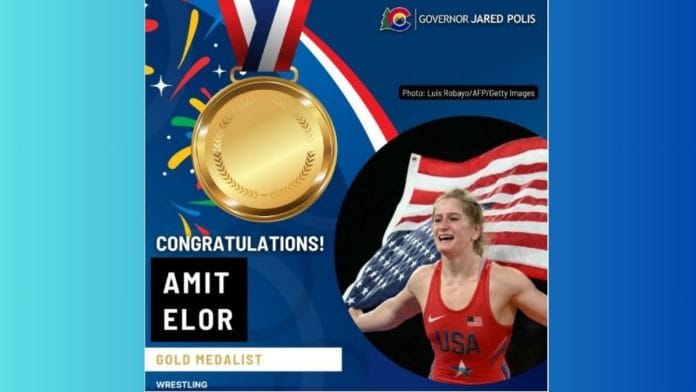Thank you dear subscribers, we are overwhelmed with your response.
Your Turn is a unique section from ThePrint featuring points of view from its subscribers. If you are a subscriber, have a point of view, please send it to us. If not, do subscribe here: https://theprint.in/subscribe/
As the Paris Olympics conclude, the performance of Indian athletes and the media’s response reveal troubling trends that demand attention. Pakistan, despite facing economic collapse, secured a gold medal in javelin, while India’s star Neeraj Chopra, with all the hype and support, finished second. Indian wrestler Vinesh Phogat, a symbol of hope for women’s wrestling, was disqualified for being overweight despite prior warnings. Furthermore, the Indian media’s silence on Israeli-American Amit Elor’s gold medal in women’s wrestling is concerning. This selective reporting and lack of accountability raise serious questions about the priorities and integrity of Indian sports and media.
Neeraj Chopra: A Lesson in Complacency?
Neeraj Chopra, India’s athletic icon, has enjoyed immense financial and emotional support from both the public and government, especially after his historic gold medal win at the Tokyo Olympics, which ignited national pride. However, in a recent Javelin event in the Paris Olympics, Chopra finished a distant second to Pakistan’s Arshad Nadeem, despite Pakistan’s severe economic challenges. Nadeem’s victory highlights that success in sports is not solely about resources. While India has heavily invested in Chopra’s training, there seems to be a shift towards complacency and overconfidence. Chopra’s performance is a stark reminder that past achievements don’t guarantee future success, prompting a need for the Indian sports establishment to reassess how they nurture talent.
Vinesh Phogat: A Case of Neglect?
Vinesh Phogat’s disqualification in women’s wrestling due to being overweight underscores a troubling lack of discipline and accountability in Indian sports. Despite warnings about her weight, Phogat, a highly accomplished athlete, failed to meet the necessary standards, resulting in her disqualification. This incident reflects poorly not just on Phogat but also on the Indian wrestling federation, raising concerns about the support system surrounding athletes, including coaches and trainers. How did an athlete of Phogat’s caliber, with Olympic potential, neglect basic fitness requirements? This oversight reveals deeper issues in Indian sports, where discipline is often overshadowed by fame and complacency.
The Silence on Amit Elor: A Geopolitical Blind Spot?
The Indian media’s silence on Israeli-American Amit Elor’s gold medal win in women’s wrestling is striking. While Neeraj Chopra’s second-place finish and Vinesh Phogat’s disqualification were widely covered, Elor’s achievement was ignored. This selective reporting does a disservice to sports journalism and suggests a potential geopolitical bias. In a world where sports should unite, the Indian media’s reluctance to acknowledge Elor’s victory raises concerns about the influence of diplomatic Indian relationships on coverage. Is the omission due to India’s complex ties with Israel, or simply negligence? Either way, it undermines the credibility of Indian journalism and underscores the need for a more balanced and impartial approach to sports reporting.
As I’ve published in ThePrint: “India and Israel are forever connected – We are ancestrally the same!”

The Broader Implications: A Call for Introspection
These incidents reflect a deeper issue within Indian sports and media, highlighting a growing disconnect between the potential of Indian athletes and their actual performance on the global stage. Despite increased funding, improved training facilities, and greater media attention, Indian athletes continue to fall short of expectations. This underperformance can be traced to factors such as complacency, lack of discipline, and inadequate support systems. The Indian sporting establishment must shift its focus from celebrating past achievements to fostering a culture of continuous improvement and accountability. Athletes should be motivated to pursue excellence regardless of previous successes and held accountable for their performance.
Similarly, the Indian media must reflect on its role in shaping public perception and national pride. Selective reporting and biased coverage not only mislead the public but also undermine the spirit of sportsmanship. The media has a responsibility to provide comprehensive, unbiased coverage of all athletes, irrespective of nationality or political implications.
Conclusion: A Path Forward
The recent developments in Indian sports, particularly in the context of the upcoming 2028 LA Olympics, should serve as a wakeup call for both the sporting establishment and the media.
India has the potential to become a global sporting powerhouse, but this can only be achieved through a commitment to excellence, discipline, and fairness.
Only then can India truly realize its potential in the world of sports.
Bio: Akshay Sharma is a Media and Tech consultant, an engineer, ex-Gartner analyst, and board member of Somy Ali’s No More Tears. He writes on issues of national importance, aiming to shed light on the intricate connections that shape our society. His polymath daughter Anjou Sharma made the US Olympic Development Program for women’s soccer, and after a torn anterior cruciate ligament (ACL), she completed her 3 degrees in Computer Science, Neuroscience and Philosophy from the University of Miami, with a Presidential award. His opinions are personal.
These pieces are being published as they have been received – they have not been edited/fact-checked by ThePrint


